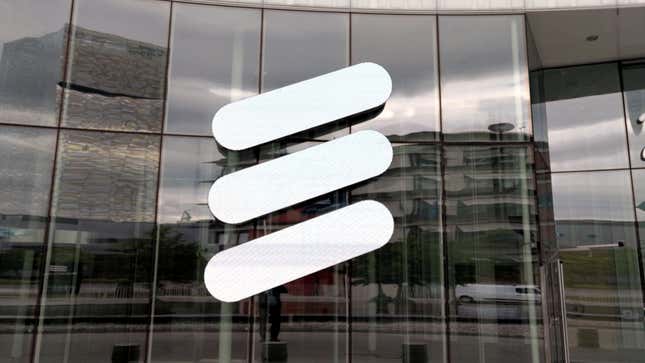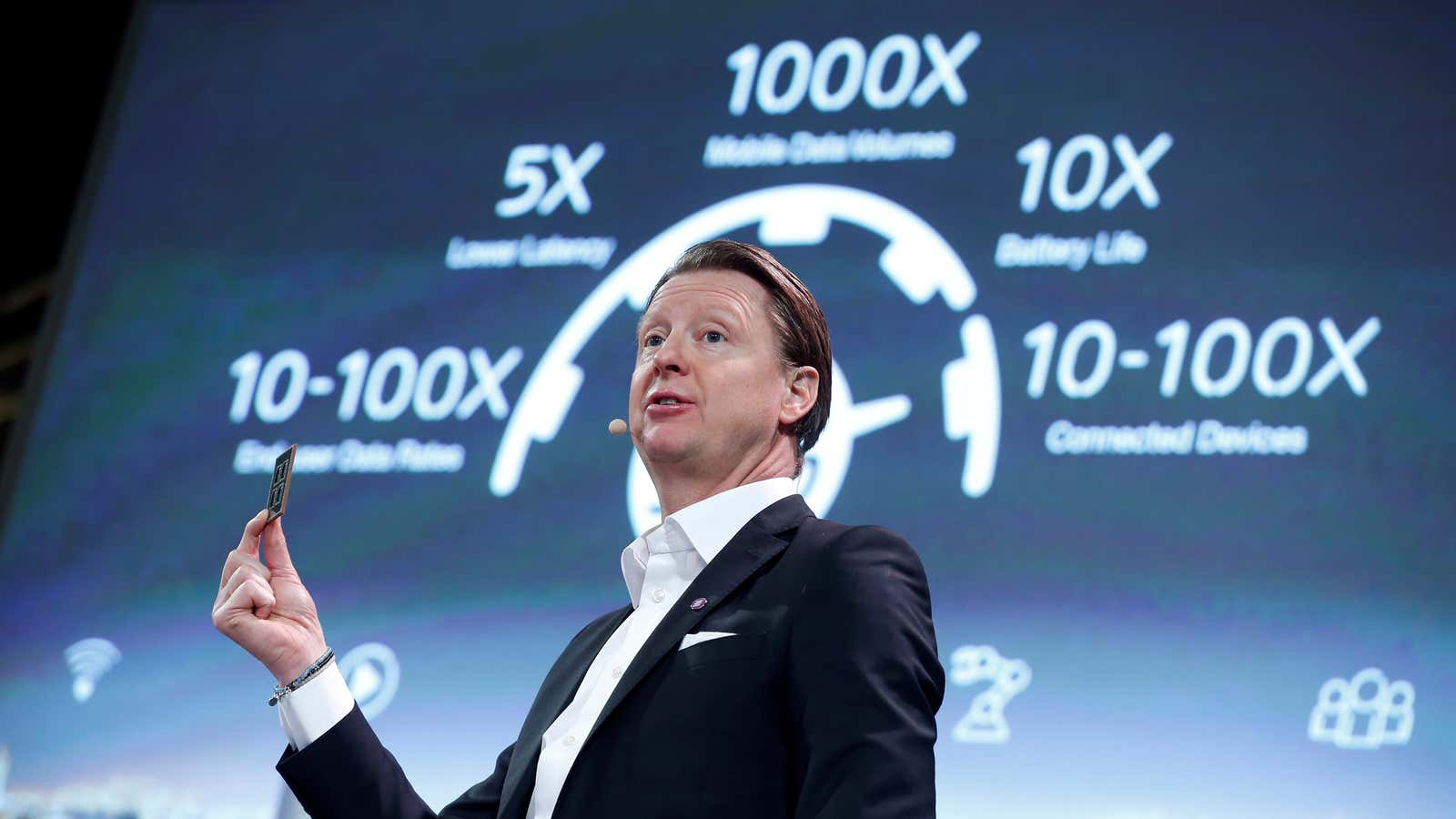The global 5G equipment market is dominated by three companies: China’s Huawei, Finland’s Nokia, and Sweden’s Ericsson. Together, they account for roughly 80% of 5G base stations around the world, and until recently, Huawei was leading the pack, thanks to high-quality and competitively-priced network equipment.
But US intelligence officials believe that Huawei is linked to the Chinese military and Communist Party, and that it presents a security threat. Recently, the US barred companies that use American technology from selling chips to Huawei, effectively cutting off the company’s supply of essential semiconductors (Quartz member exclusive). The US has also pressured allies to prevent Huawei from supplying components for their 5G networks.
This has had an impact in Europe. In the past few weeks, Belgium’s National Security Council banned the use of Huawei equipment for its core 5G capacity and restricted the use of Huawei equipment in its radio access network (RAN). Germany’s main telecom operators said they will not use Huawei equipment in their core network. And according to reports in the Financial Times and Daily Telegraph, the UK government is drawing up plans to phase out Huawei technologies by 2023.
Europe is one of the largest 5G markets outside of Asia, and is home to two industry leaders. And now, European companies—and Europe’s technology ambitions—are likely to benefit from the continent’s growing distrust of Huawei.
Europe’s great Ericsson swap-out
Historically, says Richard Windsor, a global tech consultant and founder of research company Radio Free Mobile, the 5G infrastructure market in Europe has been dominated by Ericsson and Huawei, with Nokia trailing behind. “Ericsson was a technology leader, and Huawei was the cost leader, and they kept each other honest,” he argues.
Now, analysts say the tide is shifting in favor of Ericsson (paywall).
Ericsson operates 17 5G networks across 13 European countries. It has already benefited from the increased scrutiny surrounding Huawei infrastructure in Europe: Operators in Denmark, Norway, the UK, and Germany have recently switched providers from Huawei to Ericsson for their RAN or core networks. The company’s footprint in Europe is growing.
The Stockholm-based company has also benefited from US support and a lack of competition in the European market. As part of its dispute with Huawei, the US has offered loans to telecom providers who want to switch out Huawei equipment, including in Brazil and among domestic rural carriers. US attorney general William Barr even went as far as to suggest in February that the US should buy or take a controlling stake in Ericsson and its rival Nokia. “We have to make a decision on the ‘horse’ we are going to ride in this race,” he said. (The Trump administration has since since dismissed that idea.)
Meanwhile Nokia, Ericsson’s European rival, was late to the 5G game and has struggled to catch up, although by at least one measure, it is doing well: In March, it announced that it holds more than 3,000 “essential” patents for 5G. But the question of 5G patents is hotly disputed. The European Patent Office says Huawei is the continent’s top applicant for patents, while law firm Bird & Bird conducted a study in 2019 that used quality filters, and found that Ericsson holds the most essential ones.

Thanks to high-quality gear and a good market reputation, indirect help from the US, and troubles plaguing both of its major competitors, Ericsson “has staged a technological comeback at the dawn of 5G,” according to Iain Morris, news editor at the telecom industry publication Light Reading. (While Huawei has taken a serious hit from US-related pressure, it reported a profit in the first quarter of the year, and has signed 91 commercial 5G contracts around the world.)
Still, Ericsson has its limitations. The Swedish tech company will be monitored by compliance officers (paywall) for the next three years under the terms of an agreement with US authorities, after it admitted to bribing officials in at least five countries, in violation of the Foreign Corrupt Practices Act.
“If you look at it from a corporate point of view, you could argue that Nokia is a better-run company,” says Windsor. But Ericsson, he says, is “bigger and stronger” than Nokia, and both can benefit from the negative attention surrounding Huawei by “push[ing] the ‘trust me, I’m Finnish or Swedish’ button.”
European telecom’s 5G ambitions
It’s not just the the US that’s plaguing Huawei; European officials have been sounding the alarm about the security of core infrastructure, and positioning the 5G question at the heart of the EU’s vision for technological leadership. In doing so, they have raised the stakes for countries that choose to move forward with Huawei equipment.
Huawei has responded by doubling down on the European market, which, along with the Middle East and Africa, accounts for 24% of its revenue. It backed the publication of an industry report last year claiming that banning equipment from Chinese firms would cost European telecom providers €55 billion euros ($62 billion) and cause an 18-month delay. In February, one of the company’s top executives in Europe said that “Huawei is more committed to Europe than ever before,” and announced that it would set up manufacturing plants on the continent in an effort to produce “5G for Europe made in Europe.”
These public relations efforts are being met with some skepticism. In January, EU member states adopted a joint policy and “toolbox” that recommends “necessary exclusions” of high-risk vendors from “critical or sensitive” parts of their 5G networks. And the UK government is under pressure to scrap plans for a Huawei R&D and manufacturing centre in Cambridge.
For now, rotating Huawei chairman Guo Ping said, the company is simply fighting for “survival.”
Clarification: An earlier version of this article stated that the UK government has decided to phase out Huawei by 2023. This has not been officially confirmed, but nor has it been denied, and multiple media outlets have reported a plan.
